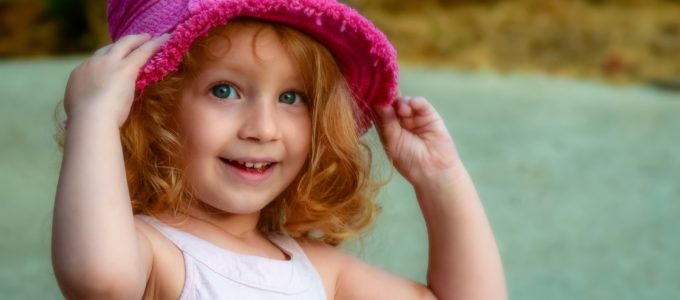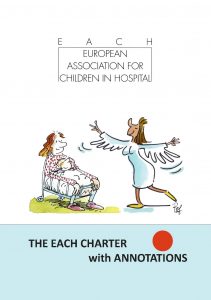
Babies and young children need to be watched carefully during hot weather as they can become ill.
Their health can be seriously affected by:
-
Dehydration: Babies and children overheat and dehydrate quickly in hot weather. They need to drink plenty of fluids to avoid becoming dehydrated so breastfeed or bottle-feed your baby more often in hot weather. Offer older babies and children extra drinks in hot weather, the best drink is water
-
Heat exhaustion and heatstroke: Never leave babies and children in the car, not even for a moment
-
Sunburn: Keep your baby cool and protect them from the sun. Dress them in cool clothing and protect them from the sun with hats and sunscreen.
How does hot weather affect my baby or child?
Hot weather can affect your baby or child because their bodies cannot adjust to changes in temperature as well as adults. Babies and children sweat less, reducing their bodies’ ability to cool down, and they generate more heat during exercise than adults. They are at risk of overheating and developing a heat-related illness. Heat can also make existing illnesses worse.
Keeping your baby and child healthy in hot weather
Follow these tips to keep your baby and child healthy in hot weather. If your child is sick (fever, vomiting or diarrhoea, or even a mild cold), they need extra attention to ensure they remain well hydrated and don’t overheat. See your doctor if your child is unwell.
Drinking enough fluids
- Babies and young children are not able to tell you that they are thirsty, so it is important to offer drinks or breastfeeds frequently.
- Breastfed and bottle-fed babies less than six months of age will need to be fed more often in hot weather. Water or other drinks are not needed unless recommended by a doctor.
- Babies over six months of age can be offered small amounts of cooled boiled water, after or between milk feeds.
- In hot weather, skin contact can be quite uncomfortable for a baby at feed times. You could try to use a towel, sheet or a nappy between yourself and the baby.
- A good indicator that a baby is getting enough fluids is if it has six to eight pale wet nappies in a 24 hour period.
- If you are breastfeeding your baby, make sure you drink plenty of water.
- Offer young children water as their main drink throughout the day. Fruit juice, fruit based drinks and fizzy drinks are not recommended.
- Older children often forget to drink because they are busy playing. Encourage your older child to drink regularly.
Keeping cool
Clothing
- Dress babies and children in light, loose clothing.
- Protect them from the sun with a broad-brimmed hat and sunscreen.
Environment
- For sleeping, choose the coolest room in the house. Keep the heat out by closing the curtains and make sure fresh air can circulate. Don’t leave babies asleep in a pram as they can become very hot.
- Cool your baby with damp cloths and place wet towels or sheets around the cot to cool the air immediately near them. Check regularly to make sure they are not getting too cold.
- Give your baby or child a lukewarm bath or sponge them down with lukewarm water. Don’t use cold water or ice in the bath.
- If you use a fan, don’t point it towards your baby or child but use it to keep the air circulating. Make sure your child cannot touch the fan, be cut with the blade or be electrocuted.
- If you have an air conditioner, make sure the room does not get too cold, 24-26 degrees Celsius is low enough.
- If your house is very hot, visit family or friends who may have a cool house or your local shopping centre, library or movie cinema.
Out and about
Outdoors
- If possible, keep your children inside during the hottest parts of the day. Plan your activities for early morning, late afternoon or evenings.
- If you have to go out, protect your baby’s or child’s skin from the sun (keep them in the shade or cover their skin with loose clothing and a broad-brimmed hat). Use small amounts of sunscreen with a minimum SPF 30+ on skin which cannot be covered. Make sure the product also protects against both UVA and UVB rays. Many brands produce sunscreen specifically for babies and young children, as these products are less likely to contain additives that might irritate the skin. Apply the sun cream regularly, particularly if your child is in and out of the sea or paddling pool.
- If your child does a lot of outdoor activities and exercise, take regular breaks and provide plenty of fluids.
Cars
- Never leave babies, children or pets alone in a car, not even for a moment. Babies and children can overheat very quickly in cars. The temperature inside a parked car can be 30-40°C hotter than outside the car. Most of the temperature increase occurs within five minutes of closing the car and having the windows down 5 cm causes only a very slight decrease in temperature.
- Use sun shades on windows.
- When planning a longer car journey, try to travel in the cooler hours of the day, dress your child lightly and provide plenty of cool water during the journey.
Prams and strollers
Only cover your baby’s pram or stroller with a light cloth that still allows the air to circulate. An enclosed pram can get very hot; try to ensure that the air circulates around your baby..
Some ideas about food in hot weather
- A refreshing idea for young children is to freeze fruit pieces (orange quarters, watermelon).
- Give more frequent but smaller meals, offer chilled food items and minimise hot food.
Signs and symptoms of heat-related illness and what to do for your baby or child
Heat exhaustion
Signs and symptoms
- Looking unwell and more irritable than usual
- Pale and clammy skin
- Sleepy and floppy
- Fewer wet nappies than usual
- Dark urine (normal is light straw colour)
- Refusing to drink (babies may feel uncomfortable to have skin contact when breastfeeding – try a towel on skin)
- Intense thirst (but as the baby gets weaker, he/she may drink less)
- Dry skin, mouth and eyes (no tears when crying)
- Soft spot on baby’s head (fontanelle) may be lower than usual
What to do – first aid
If you think your baby or young child is suffering from heat exhaustion, SEEK MEDICAL ADVICE.
- A breastfed baby with heat exhaustion should be offered the breast as much as possible. Cool boiled water may be considered, particularly for babies over six months old or those already receiving other fluids
- A bottle-fed baby with heat exhaustion should be offered an extra bottle and cool boiled water
- An older child with heat exhaustion should be offered water or diluted fruit juice (1 part juice in 4 parts water)
Heat stroke
Signs and symptoms
- All the signs of heat exhaustion as above plus:
- Rising body temperature
- Red, hot and dry skin
- Rapid breathing
- Vomiting
- Confusion
- Coma (not responding when touched or called)
What to do – first aid
Immediately call 999 and ask for an ambulance
- Move to a cool area and remove all extra clothes
- If the baby or child is conscious and able to drink, give small sips of cool fluids
- Bring their temperature down using any method available (sponging with cool water, cool bath, or covering with cool damp cloths)
- If unconscious, lay the child on their side (recovery position) and check they can breathe properly. For babies less than a year old, a different recovery position is needed. Cradle the infant in your arms with their head tilted downwards to make sure they do not choke on their tongue or vomit. Support their head with your hand
- Perform CPR if needed
USEFUL SOURCES OF INFORMATION
Information used in this article first appeared in the Beat the Heat feature by the NSW Ministry of Health.
We have also referred to the NHS How can I keep my baby safe during hot weather for information.
